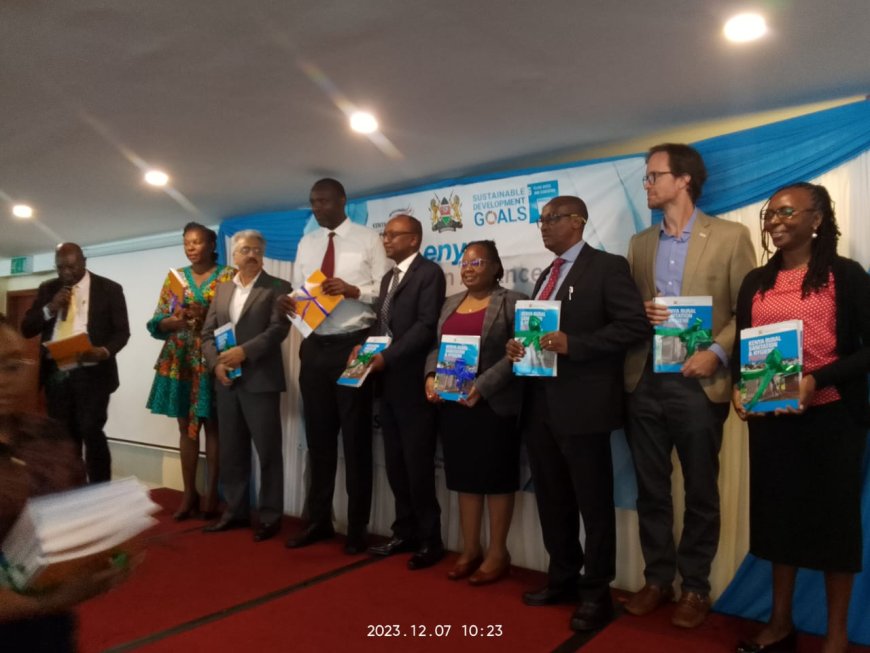Launch of Pivotal Documents to Improve Sanitation and Hygiene in Kenya

Nairobi,
Thursday, December 7 2023,
KNA by Cynthia Cherotich/ Kelvin Waribu
The Kenya Sanitation Alliance, a product of the Government, has launched the Sanitation and Hygiene documents in conjunction with USAID and UNICEF bringing together representatives from all 47 counties in Kenya with the aim of creating hygiene awareness countrywide.
While unveiling the two pivotal documents shaping Kenya’s sanitation landscape, State Department for Public Health and Professional Standards Principal Secretary Mary Muthoni maintained that County Governments are responsible for county sanitation services including licensing and controlling of establishments that sell food to the public, cemeteries and funeral parlours and crematoriums.
She added that the Ministry of Health has policy objectives which include scaling up rural-urban sanitation and universal access to improved sanitation by 2030, to ensure a clean and healthy environment for all Kenyans through appropriate technology, to strengthen an institutional and human resource capacity of the environmental sector for efficient and effective provision of Sanitation and ideal services.
Others, she said, include; to ensure sustainable financing for sanitation through public and private investment, to establish an effective research development framework for sanitation, to approve proper technology choices that promote evidence informed sector decision making and to establish a functional effective monitoring and evaluation framework for the sanitation sector to ensure maximum accountability in policy implementation at all levels.
In a speech read on her behalf by the Head, Directorate of Public Health Dr Kamene Kimenye, the PS said that the Ministry of Health has developed several guidelines and policies to through respectable working groups.
“The rural Sanitation and hygiene documents we are launching today are a road map towards healthier creatives, laying the foundation for a healthcare system that leaves no one behind. To implement this initiative successfully, collaboration is key,” stated Muthoni.
She extended her gratitude to all collaborating Governments, ministries, partners, stakeholders, the Council of Governors, the Chair of Health Committee in the County Assemblies and the private sector who have contributed to the development of this document, and urged all of them to actively participate in the implementation of the document.
“Let us work hand in hand to bring out positive change in our communities realizing the vision of our health care mission,” she added.
At the same time, Deputy Director of Public Health Mr. Anthony Wainaina mentioned the Kenya Rural and Hygiene Protocols emphasize on six blocks including the construction and proper use of latrines, safe treatment and disposal of faecal sludge, sustained hand washing practices, food hygiene, safe water handling and maintenance of a clean home environment.
Further, Wainaina opined on matters concerning open defecation which he considered a menace and a huge health risk to citizens.
“Money is not the issue, but the people changing their behaviour. A good example is Bolivia where people were given loans to build latrines but did not use them. Open defecation has and will remain to be a problem,” exemplified Mahboob Bajwa, a United Nations Children’s Fund (UNICEF) representative.
Representing the Council of Governors was Dr. Emmanuel Wamalwa, a public health expert who disclosed that about 30 percent of County finances go to health care.
“There are huge investments into the County and National governments towards health care. I urge stakeholders and partners to optimize on them. Devolution has also helped to improve social accountability,” he remarked.
Courtesy ; KNA
What's Your Reaction?



































































































































































































































































































